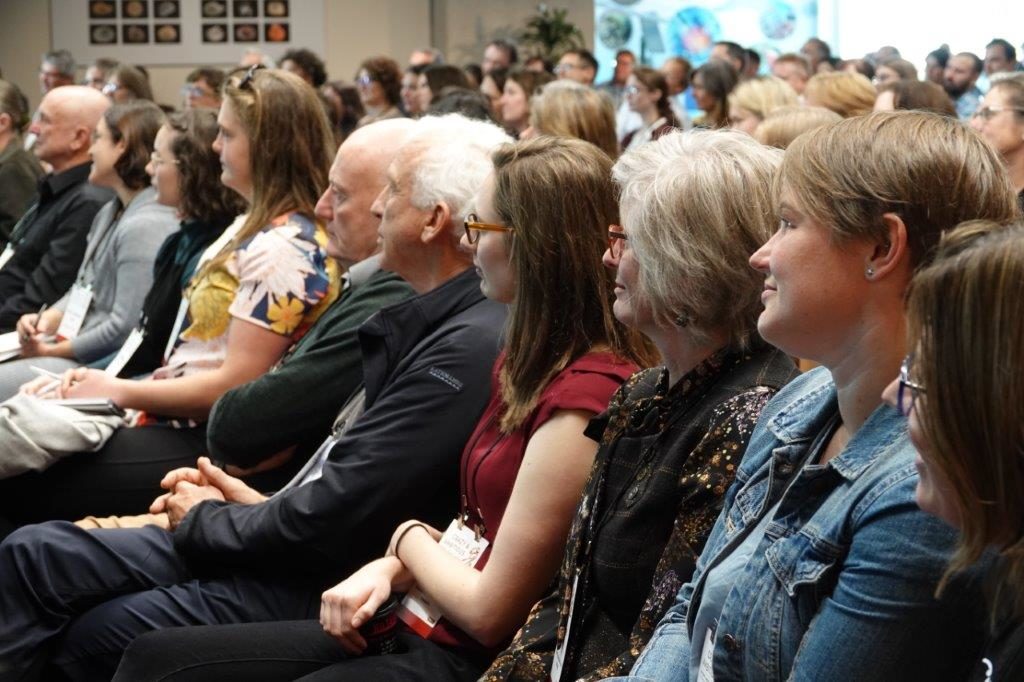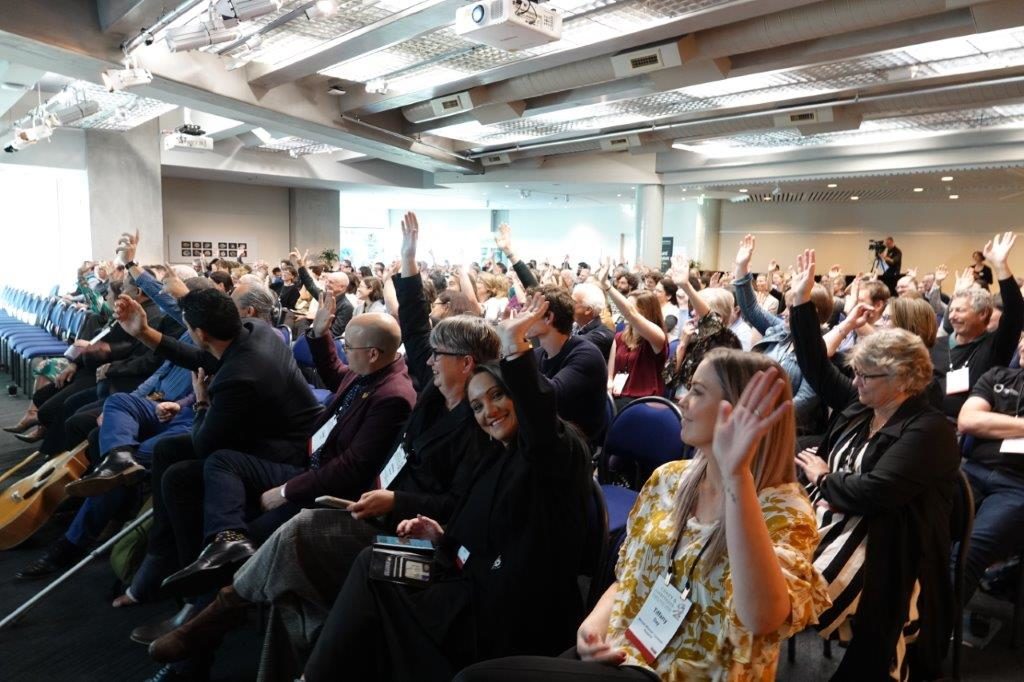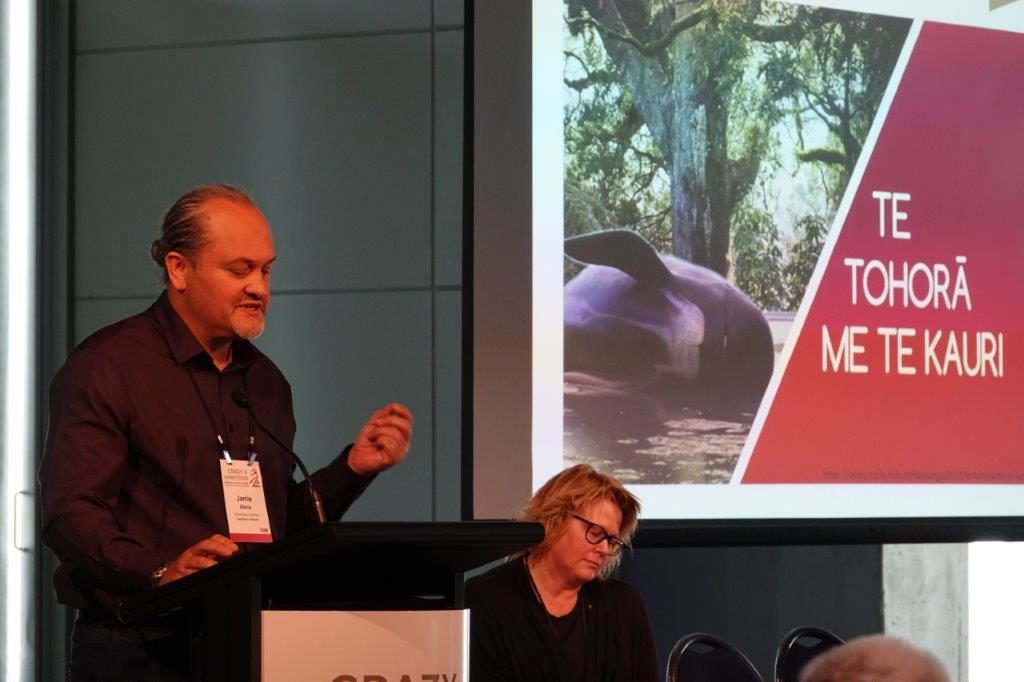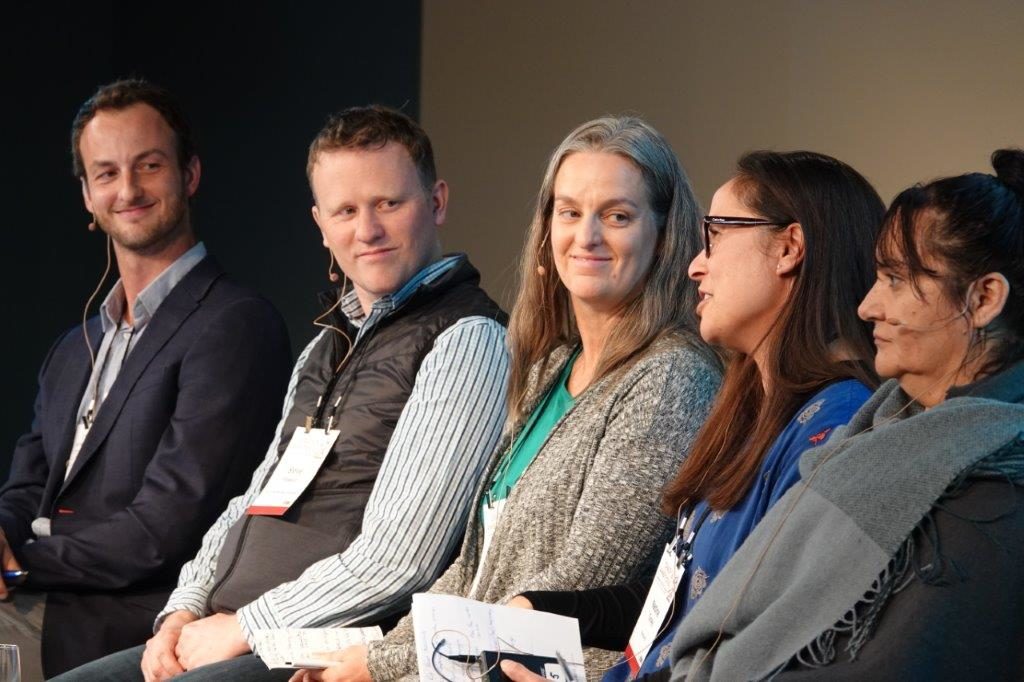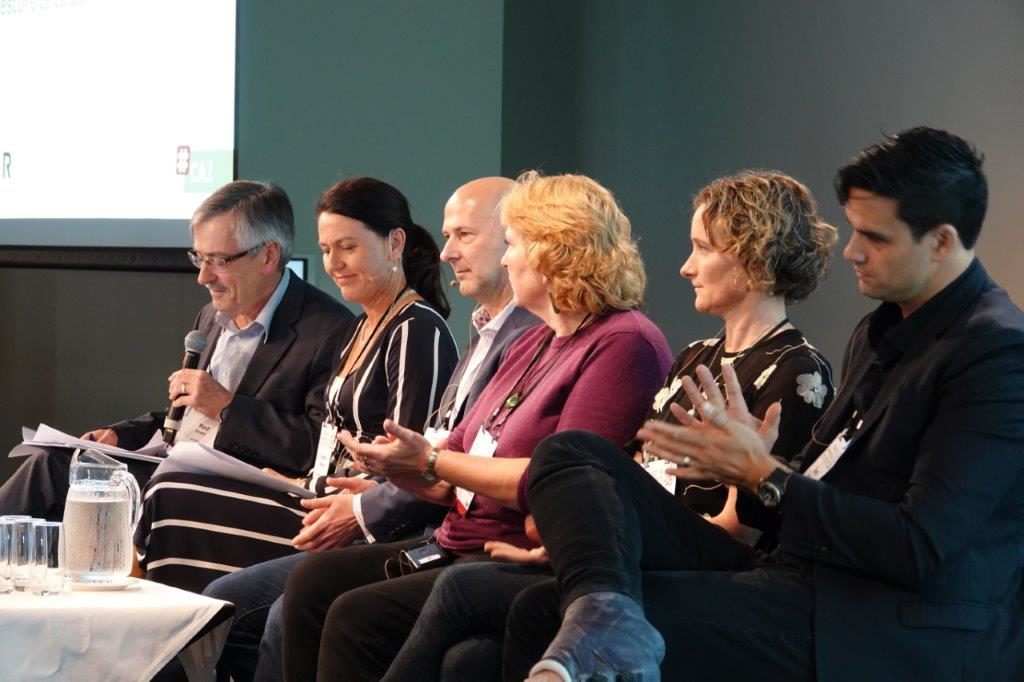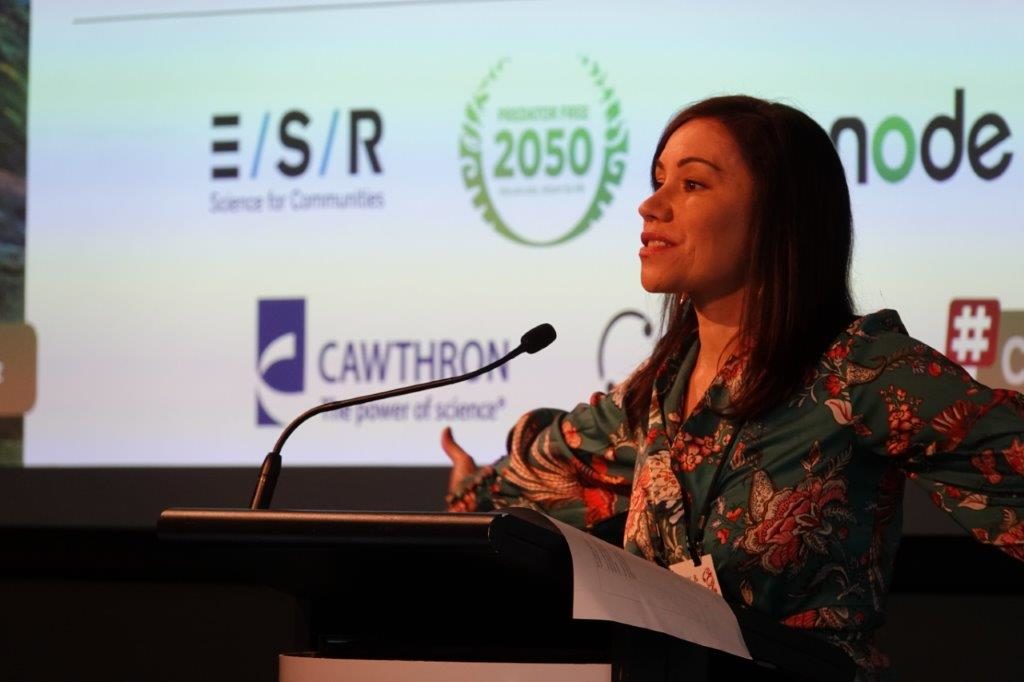Past Events
Urban Restoration Workshop
7 June,2019
The Christchurch Urban Restoration Workshop brought together some of the country’s brightest minds to discuss urban ecological restoration.
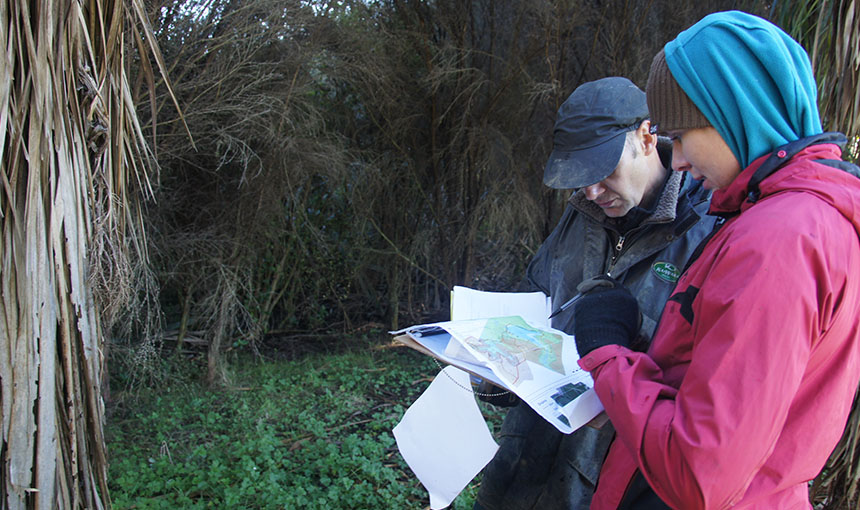
Co-hosted by the BioHeritage Challenge and the urban restoration research programme People, Cities & Nature, the workshop covered the latest information and ideas across many topics from native birds to urban farming and sustainable business.
Both organising parties are involved with interdisciplinary research and outreach to improve the quality of life, health and economic wellbeing in New Zealand’s cities and towns through understanding and enhancing our biological heritage.
The event was concluded with a special evening seminar from internationally recognised urban restoration expert, Professor Bruce Clarkson, who spoke about Bringing Indigenous Nature Back into New Zealand’s Towns & Cities.
Programme:
9.00am: Welcome & introductions
9.10am: Bruce Clarkson – Urban Ecological Restoration – the bigger picture
9.30am: Andrea Byrom – Empowering action for the protection of urban nature
9.50am: Morning break
10.20am: Colin Meurk – The long road from ‘extinction of experience’ to restoration
10.40am: Kiri Joy Wallace – A forest on our doorstep
11.00am: Nicholas Dickinson – Urban Soil Ecosystem Services
11.20am: Yolanda van Heezik – Green space, well being and biodiversity engagement
11.40am: Kelly Dombroski – Caring commons, cultivating commoners
12.00pm: Lunch
1.00pm: Eva Collins – Making Nature Your Business
1.20pm: Nige Cottingham – Biodiversity, urban nature, ecological restoration
1.40pm: Ana Teixeira – Port Hills post-fire recovery
1.55pm: Georgia Sharp – Effects of Management on Biodiversity in Riccarton Bush
2.10pm: Julia Rambacher – The Styx Living Laboratory Trust: A river care group
2.30pm: Evan Smith – Natural Restoration of the Ōtākaro Avon River Corridor
2.50pm: Jon Sullivan – Counting wild nature in cities with iNaturalist NZ
3.10pm: Afternoon break
3.30pm: Mike Bowie – Plants, people, pitfalls & pests
3.50pm: Laura Molles – Where to from tūī?
4.10pm: Andrew Crossland – A New Dawn (Chorus) for Otautahi/Christchurch
4.30pm: Hamish Fairbairn – Conservation Volunteering
4.50pm: Day programme wrap up
7pm: Professor Bruce Clarkson: Bringing Nature Back into Towns and Cities
Show ResourcesHide ResourcesCrazy & Ambitious 2
20 & 21 May 2019, Te Papa, Wellington
Almost 300 people attended Crazy & Ambitious 2 earlier this year, enjoying a mix of dynamic panel discussions, inspiring keynote speakers and quick-fire research updates.
Partnering for Impact was the over-arching theme of the event, with a powerful line-up of inspirational speakers and panelists setting the scene for a future we can all aspire to.
Dynamic and interactive, the symposium was split into three distinctive sections to reflect the priority areas in BioHeritage’s new strategy: Whakamana, tiaki and whakahou (Empower, protect and restore).
There were a total of 10 keynotes, six panel discussions and 14 quick-fire updates on the science and research being done across our 18 Challenge Parties.
In addition, Te Tira Whakamātaki (TTW) hosted an evening event on Day One focused on indigenous environmental concerns in a shrinking world. It was headlined by Danbi Cho who talked about enriching environmental science with indigenous knowledge, followed by Q&As and a TTW award presentation.
See images from the event. You’re welcome to use these photos but we ask that you credit us accordingly: Image: BioHeritage Challenge. Please email us with any queries.
Email us for a copy of presentations
See the conversation on Twitter by searching #CA2
Killing for Conservation debate
August 2018
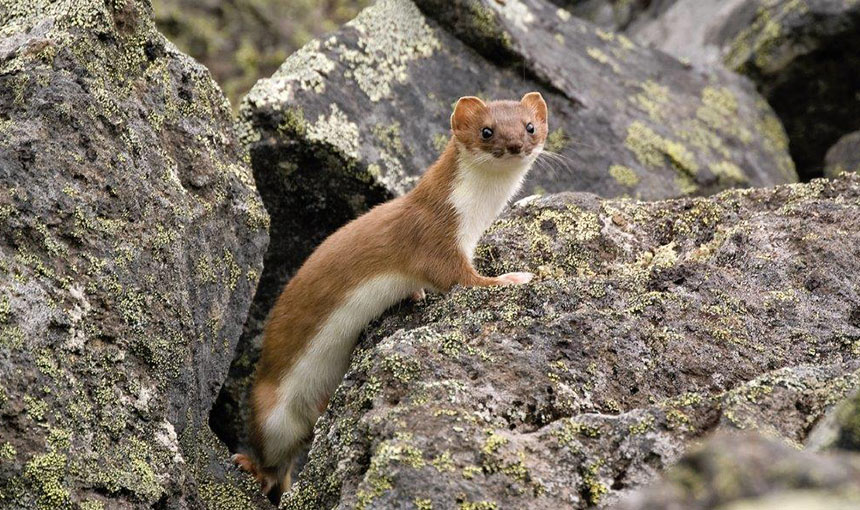
Watch these videos to hear a panel of leading scholars debate the ethical questions of predator control, hosted by Kim Hill. Click here to stream or download the full podcast.
The panel members are BioHeritage Project Leader Dr Edy Macdonald, Professor Doug Armstrong, Dr Cilla Wehi and Professor James Maclaurin. All four sit on the BioHeritage Bioethics Panel convened by Associate Professor James Russell and Dr Emily Parke.
A packed house turned out to listen to the panel discussion in August 2018 as part of the Society for Conservation Biology Oceania Section’s 2018 congress which the BioHeritage Challenge co-sponsored.
As you’ll hear, there are many issues to tackle in the quest for a predator free New Zealand, with the debate confronting questions including: What constitutes an invasive species? And why do we do conservation?
Early Career Workshop
July 2018
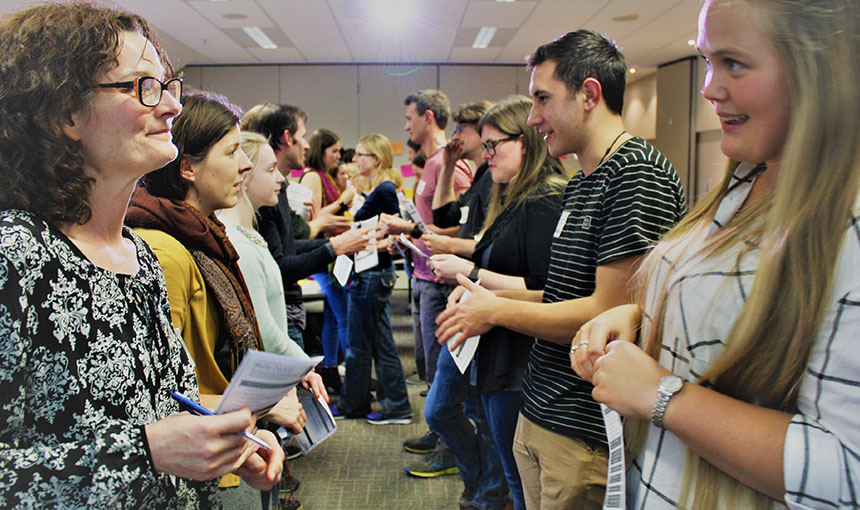
In July 2018, about 40 BioHeritage early career researchers attended a workshop in Lincoln that aimed to foster collaboration among their wide-ranging projects.
The two-day workshop featured speed-talks by each researcher, along with presentations on how to incorporate mātauranga (Māori knowledge) into research and science communications.
Attendees were either postgrad students and postdocs working on BioHeritage Challenge Projects, or early career researchers connected with aligned projects.
Postdoctoral fellow and organiser Jennifer Pannell said it was a good opportunity for early career researchers to integrate across projects and strengthen collaborations.
“We’re involved with projects spread across the country so it was great for us all to hear what the others were up to and think about how we may be able to work together in future.
“We also explored ideas for improving science outreach, and discussed technical solutions for connecting researchers. We’ll report back on the barriers and opportunities for collaboration that we discussed.”
Show ResourcesHide ResourcesCrazy & Ambitious 2017
8 to 10 May, 2017
This was the first national meeting of the BioHeritage Challenge and we wanted to try something different.
Our vision was to host a gathering that was ‘not your usual science conference’ – rather, a mix of perspectives from the wider Challenge community: scientists, community groups and NGOs, primary industry, politicians, and all our Challenge Parties.
The conference programme reflected strong involvement of Māori, scientists, communities, and the private sector.
Presentations
Protecting NZ’s primary industries
Pastures: Are they New Zealand’s most neglected ecosystem?
Barratt B, Goldson S, Agresearch/BPRC, AgResearch Ltd
The New Zealand eradication of bovine TB: A bold new target
Hutchings S, Crews K, OSPRI
How effective have biosecurity measures been in preventing the introduction of plant pathogens to New Zealand?
Hulme P, Johnson P, Cooper J, Bufford J, Duncan P, Sikes B, Bio-Protection Research Centre
Predator free NZ 2050
Science for conservation
Clout M, University of Auckland
Cape Sanctuary and its role in the Cape to City widescale predator control project
Lowe A, Lowe Corporation
